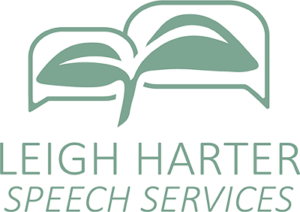Group Therapy in Hartland, MI
Why Join?

Adult Occupational Therapy Groups
Occupational therapy in the group setting can enhance the therapeutic experience by offering shared experiences, emotional support, skill-building, and opportunities for social practice that may not be as readily available in individual therapy sessions. These unique advantages make group therapy a valuable option for adults seeking to improve their speech and occupational functioning.
- Skill Development: Occupational therapy groups are often designed to help adults develop or regain essential life skills and improve their independence. Group activities can focus on activities of daily living (ADLs) such as dressing, cooking, and mobility.
- Peer Learning: In occupational therapy groups, individuals can learn from their peers who may be facing similar challenges. This learning dynamic can be especially helpful in the context of physical rehabilitation or adaptive strategies for various disabilities.
- Social Integration: Occupational therapy groups offer opportunities for individuals to practice social interactions while working on specific skills. This can be particularly important for adults with developmental disabilities or those relearning social skills after an injury.
- Problem-Solving: Participants in occupational therapy groups can collaborate on problem-solving and share strategies for overcoming barriers to daily functioning. This collaborative approach can lead to more effective and creative solutions.
- Emotional Support: Occupational therapy groups can provide emotional support and validation for individuals who may be struggling with the psychological aspects of coping with disabilities or injuries. This can improve mental well-being and resilience.
- Community and Social Participation: Occupational therapy groups may also focus on community integration and participation, encouraging adults to engage in various activities, hobbies, and roles within their communities.
- Progress Tracking: In a group setting, individuals can witness each other’s progress and celebrate achievements together, fostering a sense of accomplishment and motivation to continue working on their goals.
Occupational Therapy Groups for Children
Occupational therapy for children provides a supportive and interactive environment for them to learn, practice, and thrive. These settings harness the power of peer interaction, motivation, and social learning to help children achieve their speech and occupational therapy goals while having fun and building valuable relationships with their peers.

- Peer Play and Social Skills: Occupational therapy groups often focus on improving children’s fine and gross motor skills, as well as sensory processing and self-regulation. Children can practice these skills while engaging in group activities and play, promoting social interaction and cooperation.
- Motivation through Play: Children are naturally inclined to learn through play. In a group occupational therapy setting, play-based activities can motivate children to develop and refine essential motor and sensory skills.
- Peer Encouragement: Seeing their peers working on similar challenges can encourage children to put in more effort and try new activities. Peer encouragement can be a powerful driver for progress.
- Social Integration: Occupational therapy groups provide a safe and structured environment for children to practice social integration and develop skills they need for school, community, and home life.
- Conflict Resolution: Group settings allow children to practice conflict resolution, teamwork, and communication with their peers, helping them build essential life skills.
- Developmental Milestones: Group therapy sessions can be designed to address specific developmental milestones, helping children acquire age-appropriate skills and overcome developmental delays.
- Skill Transfer: Children can learn to apply the skills they develop in occupational therapy to daily activities, such as dressing, writing, and self-care, in a supportive and supervised setting.
Groups
Talking Toddlers Group
Toddlers group meets every Tuesday from 11-11:45 A.M.
Who should join?
Children ages 1-3 years old
Targeting the following skills:
- Communication through gestures, vocalizations, or verbally
- Social skills
- Sharing and turn-taking
- Attention
- Pre-literacy skills
- Play skills
- Problem solving
- Caregiver education and support
- Fine Motor
- Motor Coordination
- Gross Motor
- Coordination
Preschool Language Group
Preschool Language group meets every Thursday from 5-5:45 P.M.
Who should join?
Children ages 2-4 years old
Targeting the following skills:
- Identify colors and numbers
- Recognize & name basic shapes
- Sort items by size, color and shape
- Identify letters & sounds
- Increase vocabulary
- Ask and answer questions
- Early literacy skills
- Play skills
- Social skills
- Fine Motor
- Motor Coordination
- Gross Motor
- Coordination
- Pre-writing Skills
- Visual-motor intergration
Pediatric Literacy Group
Pediatric Literacy Group meets every Monday from 5-5:45 P.M.
Who should join?
Children ages 4-8 years old
This group is facilitated by our speech-language pathologists and occupational therapists, with 2-6 kids in each group. It meets weekly for themed sessions to improve speech, language, and pragmatic language skills for children ages 4-8. Goals for the group include:
- Phonological awareness skills (letter recognition, rhyming, sound blending, letter identification)
- Produce various sounds
- Increase vocabulary inventory
- Make connections through reading and interactive activities related to the story
- Enhance social communication with other children through discussion
- Improve fine and gross motor coordination through participation in story related group activities
Whole Brain Exercise Groups
Integrates left and right sides of the brain and body with exercise, vision, rhythm, vestibular and auditory processing to improve:
- Social interaction
- Memory
- Sequencing
- Attention
- Verbal reasoning
- Quality of life
Brighton Whole Brain Group Meets at Brighton Senior Center Thursdays 10-10:30 A.M.
- Session 1: 1/25 – 2/29
- Session 2: 3/7 – 4/11
- Session 3: 4/18 – 5/23
Must be a member at BSC, $25 fee for 6-week session.
Hartland Whole Brain Group meets at Village Manor Senior Living Center every Wednesday from 1-1:30 P.M.
No drop-in fee or registration required.
Monthly Parkinson Support Group
Meets at Village Manor the first Thursday of every month from 6-7 P.M.
Who: Open to people with PD and caregivers. No registration required.
Cost: Free
